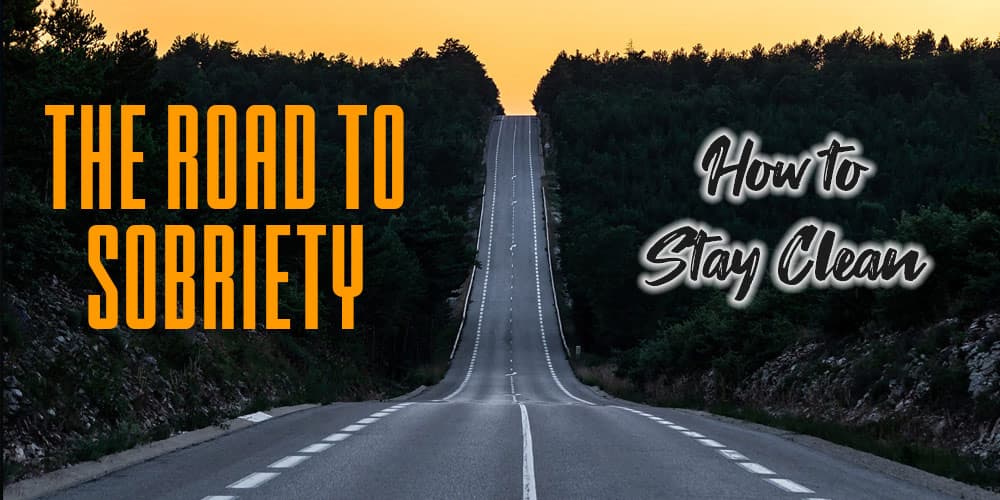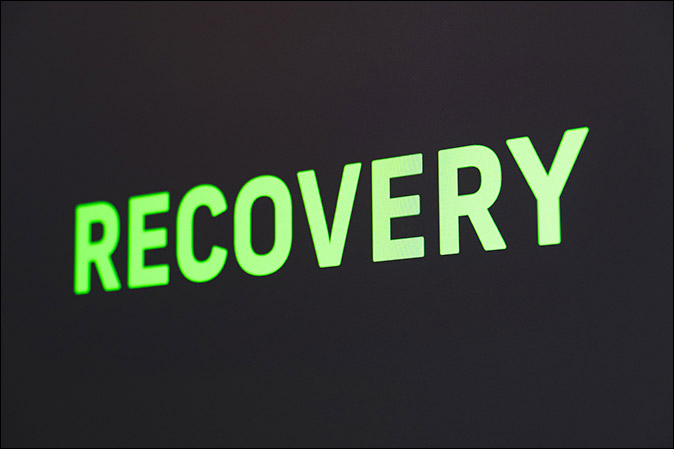
Drinking and drug use are forms of self-medication that many of us engage in to soothe emotional pain, usually stemming from some sort of adverse childhood experiences. Unfortunately for some who become addicted, trying to stay clean and sober and live the sober life is a lifelong journey.
According to the Adverse Childhood Experiences Study (ACES), a young person with six experiences of neglect or abuse is about 4,600% more likely to use hard drugs intravenously than someone who experienced zero of these.
Childhood adversity leads to depression, anxiety, PTSD, bipolar and personality disorders. Drinking and using drugs are just ways that people have found to make themselves feel “normal,” to soothe themselves, and to bring themselves relief.
Addiction is a coping mechanism.
As long as this emotional pain is left unprocessed and not dealt with in a therapeutic, healing way, we will continue to use the thing that brings us relief. The brain makes sure of this.
Addiction and the Brain
The pleasure-reward system of the brain is heavily affected by the dopamine that is released by drinking and drug use.
The source of emotional pain can be found in the limbic system, where memory and emotions stem from. The brain associates the numbing of the pain with drinking and drug use, which hijacks the normal functioning of the pre-frontal cortex. This is the part of the brain where executive functions such as impulse-control and logic derive from.
When the executive region of the brain is effectively shut down, drinking and drug use becomes a conditioned impulse, and one that is very difficult to break.
Addressing and resolving childhood trauma is a lifelong journey. Unfortunately, one can probably never totally resolve one’s childhood trauma, so there’s always more work to do in order to live with it.

Add to this, the social factors beyond our control would need to be resolved for those highly sensitive people amongst us to feel alright.
Social Factors Beyond Our Control include:
- Hyper-individualism
- Cut-throat competition
- Acquisition of material possessions over relationships and other values
- The degradation of the natural environment
- Isolation and loneliness
- Poverty, war, and violence
There’s a saying that goes, “None of us will be okay until all of us are okay.” As long as there are children going to bed hungry and the world is on fire, there will always be sense a deep disturbance.
It’s understandable that some sensitive people who feel the pain of a world in crisis might need to numb themselves to it.
What are Some Steps Addicts Can Take to Stay Clean and Sober?
Only by disentangling the source of emotional pain in our memories with our habitual coping mechanisms can we ever reverse the process of deep learning that leads one to addiction. This is one of the goals of addiction treatment using tools like cognitive behavioral therapy (CBT).
It’s also necessary to understand that relapse isn’t a failure. It’s just a minor mis-step that requires recognizing it for what it is and getting back on track by finding ways to stay sober.
Effective Ways to Stay Clean and Sober for Lifelong Recovery
Medications
Many have found relief from seeing a psychiatrist and utilizing medications when medically necessary.
It’s been said that meds can “buy us time to do the work,” and they may indeed be indispensable for stabilizing an individual who has only known chaos and disordered thought and wild mood swings. Once settled, one can begin to pursue more holistic strategies.
Mindfulness and Mediation
Thought to be the original therapy, this ancient art has been used for at least 3,500 years to help quiet the chattering mind, and help us find a deeper sense of calm and oneness.
Mindfulness and meditation are crucial to a lot of people’s recovery, which involves Buddhist concepts such as ‘radical acceptance’ and techniques like ‘urge surfing,’ where one watches their cravings come and go as a detached observer.
Nature
Nature is perhaps one of the best medicines, and connecting with nature has a profound healing effect on us, which is lacking in a lot of our lives.

Sober Life Community
A sense of community includes things like music, food, and laughter. These connections are so badly needed in today’s world that is often marked by blind consumerism, isolation, and stress.
And although we can so easily forget, humans are very social animals; we are starved for a feeling of connection with one another, and require it for our sense of well-being.
It may take time and effort, but it’s possible to build a sober life community of others who share the same goals of sobriety.
Physical Activity
The word “endorphin” is actually short for “endogenous morphine-like compounds” that occur naturally in the body, especially during exercise.
A “runners high” is the common example of this, but yoga, martial arts, hiking, surfing, working out and playing sports are great ways to tap into these “morphine-like” neurotransmitters, which have been within us the whole time.
Sober Life Self Help Support Groups to Stay Clean and Sober
AA and other 12-step sober life support groups are basically free, and are an amazing place to meet others who’ve struggled with similar childhoods, or who are also highly sensitive to the hostile and often heartless culture around us. All of these support groups share a common goal to stay clean and sober.
What are Some Challenges in Achieving the Sober Life?
If addiction is the habituated use of substances for their stress soothing properties, and if things like trauma-informed, mindfulness-based cognitive behavioral therapy is the solution to helping to ‘rewire’ the brain, then this work needs to be maintained.
Unfortunately, the neuropathways in our brains, which have been so deeply etched over such a long period of time, become a sort of default.
So, if we cease therapy and other things that we use to boost dopamine and increase serotonin naturally to reduce our stress, and have an easier time with life, our brain will usually revert back to that default mode within a few weeks.
New habits take a long time to form, even longer to become durable, and even longer than that to become the new default state. But creating positive, healthy habits will form the basis to stay clean and sober.
How Can Family and Friends Help Us Stay Clean and Sober?
People who struggle with addiction will generally find each other. By definition, we have a shared interest in alcohol and drugs.
But deeper than that, we so often have shared experiences of those adverse childhoods experiences – from divorce, to abuse and neglect, to maybe a parent who suffered from substance use or other mental health problems. Possibly even the death of a parent.
Addicts might also share a high degree of sensitivity, along with a sense of isolation, for which drinking or drug use provides the perfect antidote, as well as the opportunity for meaningful connections people so badly crave.
In recovery, it becomes very important to find others who have all of that in common, but also, who want to change their lives through whatever healing path they’ve found for themselves.
There is strength in numbers. This is the brilliance of the 12-step movement, which so far has escaped commodification. It’s an authentic community of people with similar experiences who have found each other, and with it, so much strength in the powerful sense of belonging that they find there.
For families, it’s important that they’re getting their own help. Addiction does not occur in a vacuum, as parents have either modeled or otherwise contributed to the problem.
Spouses can play into patterns of codependence, and families in general just simply don’t understand addiction and recovery well enough. They don’t know what causes it and what it takes to recover, especially if they have never been through it personally.
Because of this, families deserve to get their own help and find their own healing as well.

What are Some Myths About Addiction Recovery?
1. Harmful Consequences
Part of the definition of addiction is to continue to do some behavior “despite harmful consequences.”
By that definition, if there are no harmful consequences — health impacts, problems with relationships or at work — there is no addiction. We need to be careful not to throw the word around loosely.
2. Ignoring It Will Make It Go Away
Unfortunately, if one does have a problem attaining a sober life, ignoring it is never a solution. Those who drank and used heavily, or even just moderately, as teens and young adults, shouldn’t assume that the problem is just going to go away in their adulthood, or that they’re going to grow out of it.
It doesn’t work like that. The underlying causes and conditions have to be dealt with to stay clean and sober and for recovery to be successful.
3. Moderate Drinking Isn’t a Problem to Stay Clean and Sober
We usually associate long-term health consequences with regular heavy drinking. But we are generally less concerned about moderate drinkers, those who have 1.27 drinks per day.
But when we break down what “moderate drinking” really looks like, there are often patterns of what is known as “periodic binge” drinking.
Binge drinking is considered five or more drinks in one sitting. So those 40 or so drinks in a month, if they’re consumed in six or eight binge drinking episodes, can actually pose big trouble.
Not only can there be negative impacts on the liver and other organs, but that’s when we see risky behaviors such as driving under the influence, which is extremely dangerous for driver, passengers, other drivers, and pedestrians.
4. Recovery Can Be Done Alone
Some who have an addiction problem might not necessarily need inpatient treatment, and can maybe do this in therapy alone, along with meditation, spiritual guidance, and all sorts of other ways.
But even moderate drinkers should seek a medical opinion before abruptly stopping drinking, since there is a possible and very serious risk of seizure.
How to Encourage Someone to Face a Lifelong Commitment to Stay Clean and Sober
Forever is a long time. Hence the 12-step slogans, “one day at a time,” and “take it easy.” But more than a slogan, these are words of wisdom.
We really are all learning to live in the moment, and to see that very, very few of the things we worry about happening in the future actually end up happening. Even when they do, we’re generally always okay.
Rather than thinking about anything being “lifelong,” it’s better to just think about “life,” meaning the quality of one’s life. If we want to improve our lives, we have to ask ourselves what we need to do to make it happen.
So, rather than being afraid of never drinking or using drugs again, it becomes more along the lines of, “I find that I don’t need the drink or the drug like I used to because now I (fill in the blank) instead.”
Final Thoughts on Maintaining Sobriety and Living the Sober Life
Addiction is not a problem, it’s a coping mechanism. Trying to stay clean and sober and live the sober life is a lifelong commitment.
The underlying mental health problems are similarly not a problem per se, but rather, as Johann Hari so beautifully laid out in his book, Lost Connections, a very important signal that something is very wrong and needs to change.
Once we learn to see this, we can finally see the addicted person’s place in the world with more love and compassion, and more reverence and respect for what they’re telling us about ourselves and how we live together. We just have to be brave enough to listen to them.
Because it isn’t just them, it’s all of us who need to recover the amazing, beautiful, albeit sometimes challenging world we live in.
Related Posts
- Dry January Tips For a Successful Sober New Year
New Year's resolutions can feel like a formula for failure, especially if we're trying to…
- Healthy and Happy Gut Equals a Happy Life
We need to talk about a Healthy Gut! There are many ways that we have…
- 46 Movies About Drugs, Addiction and Alcoholism
Movies about drugs, addiction and alcoholism can be hard-hitting and even triggering for some people.…
